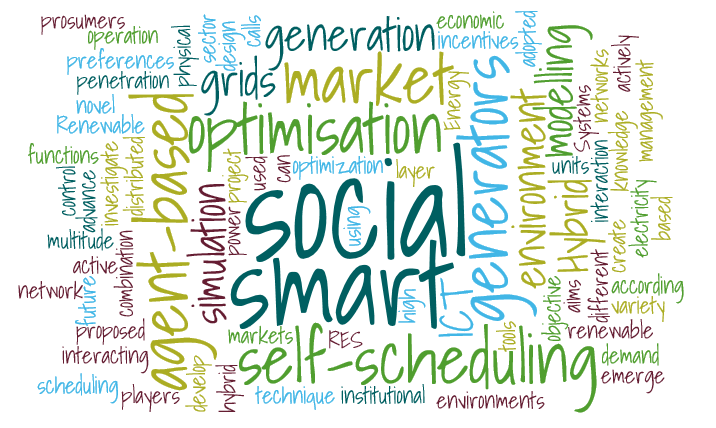This project aims to create and advance knowledge on the operation of the future power sector if smart grids with renewable generation units are adopted, with a multitude of active players interacting with each other in social networks, and with the electricity network, through a variety of ICT tools. The emerge of prosumers actively scheduling generation and demand according to own preferences calls for novel control and management functions based on economic and social incentives.
The objective of the project is to develop a hybrid modelling and simulation environment using agent-based technique in combination with distributed optimization and institutional design for smart grids with a high penetration of RES (Renewable Energy Systems). The proposed modelling and simulation environment can be then used to investigate the interaction between the physical, ICT and social layer in different markets environments.
Tasks
- Modelling self-sustainable prosumers,
- Defining incentives both in terms of price signals and social values, which sometimes may be more effective than economic signals, to influence prosumers’ decisions,
- Combining distributed optimisation with institutional design in ABMS
- Developing a modelling framework to represent physical, ICT and social layers and their interactions in the operation of the future energy systems with high penetration of RES.
Expected Results
- Agent-based simulation and optimisation environment for self-scheduling generators with demand response control where social and technical interactions determine the overall behaviour of the system.
Early Stage Researcher:
S.T.Chakraborty@tudelft.nl - -
Supervisor:
Zofia Lukszo
Remco Verzijlbergh


